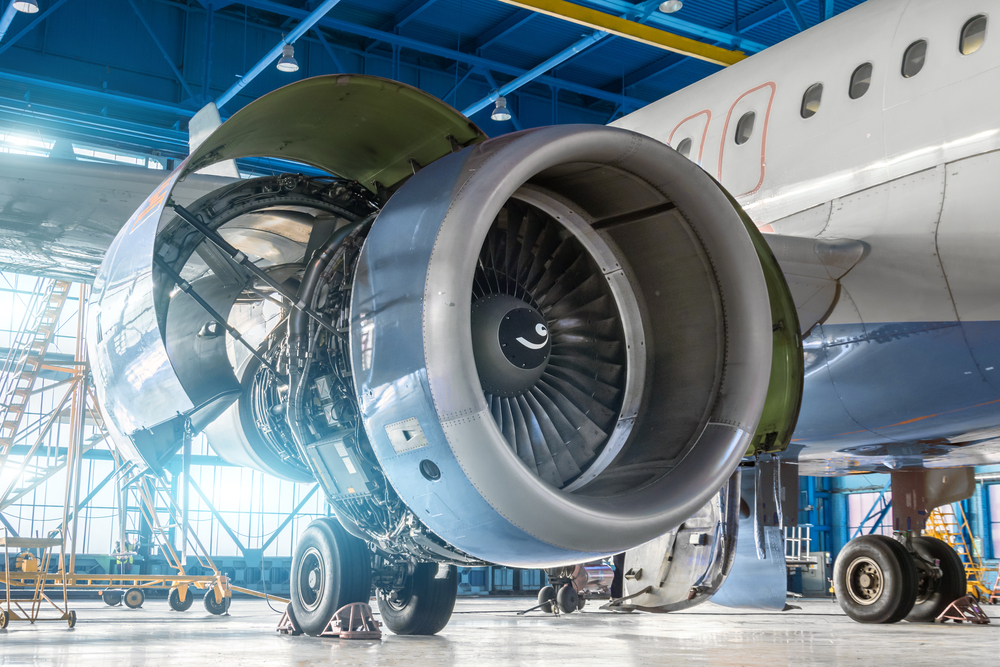Get a Quote
Still Need Help?
Call Us:
916-339-3676
Drop-off Address:
3921 Pell Circle
Sacramento, CA 95838
Get Directions
Aerospace Equipment Recycling and Decommissioning
The aerospace industry covers a lot of ground, with everything from airport security to NASA projects relying on cutting-edge tech that’s always changing. This extremely fast-paced environment exactly leads to disposing of old equipment. Different parts of the aerospace industry have different needs when it comes to disposing of electronic equipment. Our services are tailored for:
— Air traffic control
— Guidance systems manufacturers and operators
— Airport security systems
— Airplane manufacturers
— Airlines
— Airports
— Military projects
— NASA
— Contractors serving military and civilian aviation
— Private space exploration companies
We are aware of the critical concerns that arise when addressing the proper disposal of electronic waste generated by the aerospace industry. These include:
— Data security
— Environmental compliance
— Prevention of outdated or faulty products from re-entering the market
— Cost effectiveness
In aerospace projects, the IT equipment and power sources used usually consumes plenty of space and power, and are equipped with hazardous components inside. When it comes to getting rid of electronic waste from aerospace projects, it can include lots of equipment like computers, networking gear, electric circuits, and more. Getting rid of this waste means following lots of rules, including environmental laws and strict security rules from places like the NSA and the Department of Defense.
See the other Industries We Serve.
Airport Electronic Equipment
Airports use specific technology for different departments such as security, keeping schedules, and data tracking. For security, they have machines like metal detectors and X-ray scanners for checking bags. They also use systems like ion mobility spectrometry to find even tiny traces of explosives. These machines are deployed in crucial areas like facility entrances and baggage screening areas to name a few.
For air traffic control, they use radar screens and special systems that give warnings if a plane gets too close to a runway. Some airports even have cameras and microphones set up in remote towers to help controllers see everything better. They use computers to track planes and figure out the best routes for them.
And to make things easier for passengers, airports have equipment like screens showing flight info, places for you to check in, and computers for airline staff to do their jobs.
Avionics
Spacecraft and airplanes are highly dependent on electronic systems for key operations such as navigation, communication, system management, and surveillance. Airplanes rely heavily on weather monitoring systems, black boxes to record flights, systems to avoid crashes, and even autopilot to make sure flights are safe and secured.
For navigation, planes can use signals from satellites, radio, or their own sensors to show their position on screens. They also have sensors to keep track of fuel and how the engines are doing, and computers to analyze this data and warn if something’s wrong.
In military use, avionics are often used in tactical operations like using sensors and special equipment to gather data. They also have secure communication systems and tools like radar and infrared devices. Military planes use electronic measures to spot threats and protect themselves. Because military systems need to process data fast, they’re always trying to make improvements and get rid of old equipment that is outdated.
Optimal Security Through Data Destruction
Flight and communication technologies are becoming more digital and connected, but this also raises concerns about keeping aviation data safe. The National Business Aviation Association is largely concerned regarding this issue, especially since there have been a lot of hacking incidents targeting airlines and related industries in recent years, as documented by the Center for Strategic and International Studies.
Whether it’s protecting customer info or national security, it’s really important to work with a company that knows how to handle electronic waste safely and securely. We offer different levels of data destruction to make sure we meet the highest security standards.
Choosing the Appropriate Company for Aerospace Industry Electronic Waste Disposal
When you’re getting rid of electronic waste from your place, make sure it’s done in a safe, secure way and abides by all the policies. Ask the company about their certifications and how the process goes. Also, check if they can handle the size of your project, the type of materials you have, and the level of security you need for your data.
Modern Waste Solutions certifications include:
— RESPONSIBLE RECYCLING© (R2v3)
— ISO 14001
— ISO 45001
— ISO 9001
We follow the standards set by the Department of Defense (DOD) and the National Security Agency (NSA). We are experts at handling hazardous materials and making sure they’re recycled responsibly. We keep a careful record of everything from when we pick it up to when we dispose of it. Working closely with your facility, we’ll create a plan that fits your needs perfectly. You’ll receive comprehensive documentation detailing our processes for your records and legal compliance. Contact us to explore the range of options we provide.

